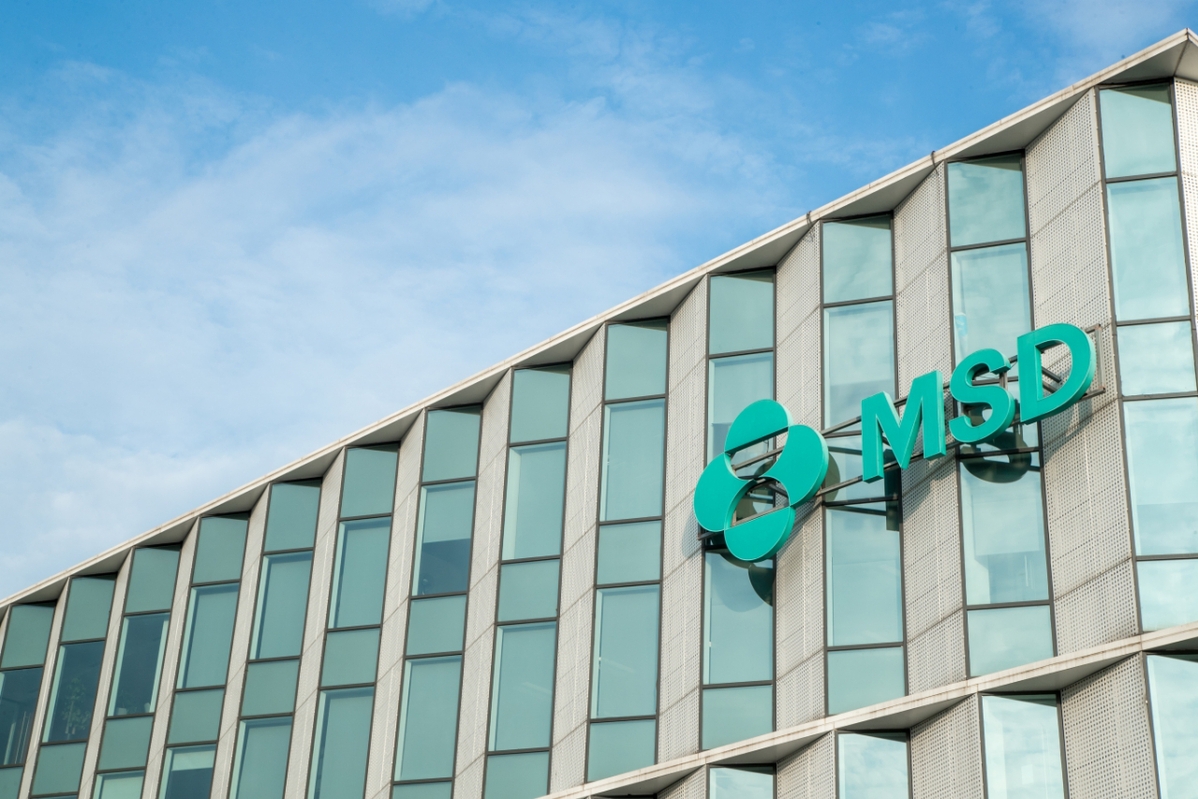
Global biopharmaceutical giant sees CIIE as epitome of Chinese values


While "in China for China" becomes the mantra of foreign companies doing business in China, Anna Van Acker, senior vice-president of MSD and president of MSD China, has also incorporated that very belief into her daily routine.
The Chinese ambience of her meeting room in the Caohejing campus of Shanghai, the pharmaceutical giant's China headquarters, is defined by the use of wood furniture, calming hues, and innate simplicity reflected by the three traditional ink-wash paintings she picked out herself.
"When you have lived here for years, China has become part of who you are now," said Van Acker, referring to her previous tenure as chief marketing officer between 2012 to 2015 in China. "I've worked at MSD for 30 years. So, my work and my life are very much intertwined."
A contrast to the soothing workspace is the stunning speed at which MSD China has grown in just a matter of years. Its human health business in China last year soared to $3.53 billion, 2.5 times that of 2015, as per the company's financial report.
Revenue contribution to the global human health unit also doubled to 7.6 percent from the 2015 level, buoyed by a robust 28 percent compounded annual growth rate.
Van Acker attributed such robustness to the synchronization of the company's mission and the government's agenda to "put patients first". This is best exemplified by the annual China International Import Expo, which showcases innovation, engages with stakeholders, and exchanges ideas.
"The CIIE gives us the opportunity to show what we've done in the past, what we stand for, and what our big ambitions are from a global perspective," Van Acker said. "And of course, it answers the question of 'how can we bring innovations to China faster?'"
Perhaps no occasion comes better than the CIIE for the global biopharmaceutical leader to celebrate its 130th birthday and the 10th anniversary of MSD Research Laboratories in China. Larger than ever, the 1,000-square-meter MSD booth marks a centerpiece of the healthcare-themed exhibition hall. Brightly colored, interactive installments stand to walk people through MSD's historical moments, China's milestones, and the latest progress in clinical development.
Titled "Inventing for Life, for a Healthier China", a suite of exhibits highlight MSD's four-pronged areas of focus in the country: oncology, vaccines, diabetes and anti-infectives, along with animal health products.
Visitors are likely to be drawn by the first oral antiviral medicine against COVID-19 if and when it's approved by FDA. The company is also highlighting its HPV vaccines and cancer immunotherapy drugs.
"It's important to have opportunities like the CIIE to showcase very important breakthrough medicines on which we're doing many clinical trials around the world and here in China," she said. "It gives us a reputation label for quality, and really broadens the perspective on what we can bring to China and beyond, to meet patients' unmet medical needs and enhance public health."
What sets this version of the CIIE apart from previous editions is the level of digitalization embedded in the setup. For instance, MSD introduced an online platform dubbed "Panoramic MSD" featuring live events, online exhibition halls, video recordings, and interactive displays.
Other digital endeavors include a multimedia booth hosting high-level interviews and interactive displays to spark visitors' anticipation.
But what's most apparent is the use of trendy technologies such as artificial intelligence robots and motion sensor interactive games to showcase MSD China's overall digital efforts. MSD's pivot toward innovation and its digital transformation during the past few years have yielded an array of digital tools that enable more effective customer-centric engagements. For instance, MSDP, the digital hub offering free branded and unbranded content and services, is now putting over 15 high-quality scientific articles per month into the hands of its roughly 200,000 registered users.
"We are in sync with those types of large-scale developments that have come with the whole tech advancement in China," Van Acker said. "And in the space of healthcare, we have digital health solutions to further facilitate drug affordability and accessibility."
A third-time CIIE participant, MSD is no stranger to signing agreements and securing partnerships at the event. This time will be no different.
A series of on-site events will be staged to champion efforts in improving public health in China, from a maternal health initiative to a vaccine donation ceremony.
During the 2019 CIIE, MSD commemorated the 30-year anniversary of its tech transfer of the Hepatitis B vaccine technology to China, the start of its journey in the country. This year, one highlight is the celebration of the 10th partnership anniversary between MSD and Zhifei in the area of vaccines, which showcases the extent of impact a multinational company and a local company can create under the premise of mutual trust and a common goal.
Such a long-standing effort serves to improve vaccine accessibility and uphold public health in China, a goal shared by both the company and the Chinese government, Van Acker noted. "I think the CIIE facilitated visibility, which opens the door for more collaborations and partnerships," she said.
With the CIIE being the epitome of China's opening-up, multinational companies are riding the boom of the Healthy China 2030 initiative, which encourages the expedited review of innovative drugs and aims to triple total healthcare expenditure from 2017 to 2030, to $2.5 trillion.
In the case of MSD, its cancer immunotherapy has been approved through eight indications in China from its first approval in 2018, covering five tumor types.
Among them, the first approval in China for the melanoma indication took only five months from filing to approval, registering the fastest approval for an imported biologic in the country.




































